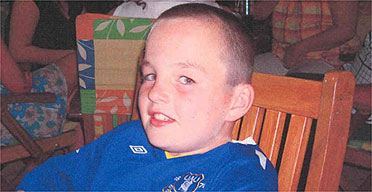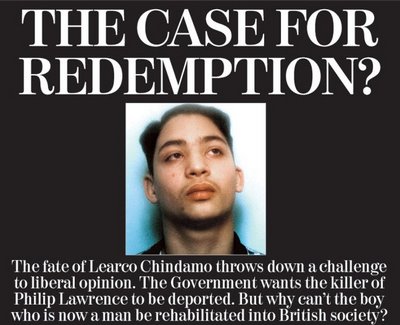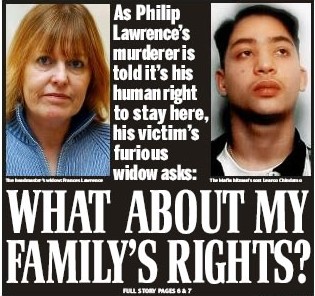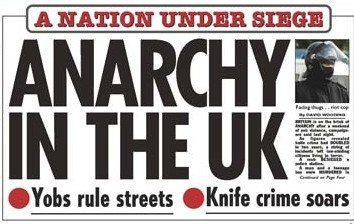More reasons to love Jeremy Paxman.
 Earlier in the year we were treated to a semi-coherent rant by the Daily Mail editor Paul Dacre in the form of the Cudlipp lecture, where he attacked the "subsidariat", i.e. the Guardian, Independent, Times and BBC for their various crimes, mainly not being right-wing enough and as a result treating the general public who as we know are naturally conservative with contempt. It's worth comparing his abortion with yesterday's excellent MacTaggart lecture by Jeremy Paxman, where he effortlessly identified the real problems with the current state of the fourth estate.
Earlier in the year we were treated to a semi-coherent rant by the Daily Mail editor Paul Dacre in the form of the Cudlipp lecture, where he attacked the "subsidariat", i.e. the Guardian, Independent, Times and BBC for their various crimes, mainly not being right-wing enough and as a result treating the general public who as we know are naturally conservative with contempt. It's worth comparing his abortion with yesterday's excellent MacTaggart lecture by Jeremy Paxman, where he effortlessly identified the real problems with the current state of the fourth estate.Taking his cue in part from Tony Blair's own valedictory speech on the state of the media, Paxman rightly notes that despite the amount of hypocrisy involved in Blair's comments and his laughable example of the Independent, his message was partly right but delivered by the wrong person.
The basic charge sheet against us from Tony Blair and Alastair Campbell is as follows. Firstly, that we behave like a herd. Secondly that we have a trivial and collective judgement. Thirdly, that we prefer sensation to understanding. I’m sorry to say, but I think there’s something in all of these arguments.
You only have to see re-examine the coverage of Rhy Jones' tragic death over the last few days to see just how the herd operates. It's been almost an exact mirror of when Madeleine McCann went missing - the news media has decamped to Liverpool, the newspapers have offered rewards for information, we've had the same intrusion into the parents' private grief, and we've had interviews with any teenager who so much as looks like he might be in a gang, none of which have told us anything to new.
Take the Guardian's interview this morning with a "Nogadog", a disgusting litany of boasts, bravado and shallow willy-waving that tells us absolutely nothing that we didn't already know about gang culture, but it sure makes for good copy and introduces the general public to local slang for the police. That the little prick behind the interview is now probably a hero along his friends for getting into the posh Grauniad with his senseless, immature mumblings despite being too afraid to show his face like the frightened shit he is ought to have told the journalist that this was gutter journalism rather than investigative reporting and getting the story behind the story. Did the television and newspaper photographers also have to film and snap Jones' parents looking at the tributes to their son, showing his mother crying again, even after they'd given an emotional press conference? It was tawdry voyeurism of the worst kind, emotional pornography that intruded on their private grief. That some of the tabloids (and indeed, the Telegraph) put it on their front page ought to tell us how much they really care: and does the Mirror's front page happen to remind anyone of one of the Sun's early efforts to "empathise" with Kate McCann?
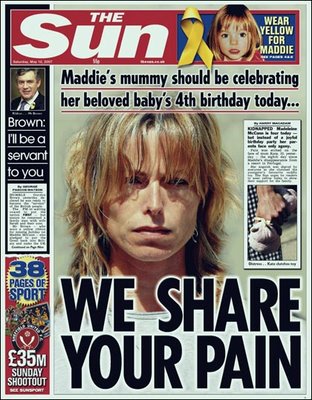
 It's perhaps fitting that Gerry McCann himself has now criticised some of the coverage of his daughter's disappearance. Some will rightly suggest that it takes some chutzpah on his behalf to condemn the "bombard(ing) [of] people on a daily basis" with Madeleine's image after that was what his wife and he set out to do in the first few weeks, but the continuing of just that has become truly revolting, with the Daily Express making up stories every day now for weeks because it's decided its a circulation booster. This is the very worst of the media's behaviour, acting both like a herd and preferring sensation to absolutely any understanding. Every reported act must be met with a reaction - Jones' death demands zero tolerance; Madeleine's disappearance has to lead to more co-operation Europe wide on paedophiles; immigration figures are not anaylsed for exactly what they mean, but are distorted, used as a political football and then by single-interest groups to prove how right they are (see Five Chinese Crackers all this week); and the decision not to deport Learco Chindamo must result in the ripping up of the Human Rights Act - and all of this in just one week, in the supposed silly season. When it's not pure sensationalism, we instead get irresponsible fearmongering: just look at the Sun's idiotic, designed to cause panic coverage of the floods, claiming there were going to be mass outbreaks of water borne diseases and that yobs were going round pissing in and smashing up bowsers, which the BBC, the Sun's natural enemy had to correct.
It's perhaps fitting that Gerry McCann himself has now criticised some of the coverage of his daughter's disappearance. Some will rightly suggest that it takes some chutzpah on his behalf to condemn the "bombard(ing) [of] people on a daily basis" with Madeleine's image after that was what his wife and he set out to do in the first few weeks, but the continuing of just that has become truly revolting, with the Daily Express making up stories every day now for weeks because it's decided its a circulation booster. This is the very worst of the media's behaviour, acting both like a herd and preferring sensation to absolutely any understanding. Every reported act must be met with a reaction - Jones' death demands zero tolerance; Madeleine's disappearance has to lead to more co-operation Europe wide on paedophiles; immigration figures are not anaylsed for exactly what they mean, but are distorted, used as a political football and then by single-interest groups to prove how right they are (see Five Chinese Crackers all this week); and the decision not to deport Learco Chindamo must result in the ripping up of the Human Rights Act - and all of this in just one week, in the supposed silly season. When it's not pure sensationalism, we instead get irresponsible fearmongering: just look at the Sun's idiotic, designed to cause panic coverage of the floods, claiming there were going to be mass outbreaks of water borne diseases and that yobs were going round pissing in and smashing up bowsers, which the BBC, the Sun's natural enemy had to correct.Paxman rightly points out just how money, ratings and the digital age have all had a hand to play in both the scandals concerning the faking of competitions, the defrauding of the vulnerable who enter premium-rate phone line quizzes, and the gradual drop in trust all round. Big Brother is but the biggest example - a witless, unethical exploitation both of those who involve themselves in it and those who itch to vote the contestants out, but which Channel 4 relies on as its banker. You could argue that Big Brother pays for Channel 4 News, Dispatches, Peep Show etc, but why should a channel providing a public service have to stoop so low in order to also bring the "highbrow"? Shouldn't we be outraged that Newsnight, an institution that usually gets less than a million viewers that if were to disappear would leave a gaping hole in political coverage on television, is getting even further cutback while programmes that are an insult to viewers' intelligence like "GrownUps", "Tittybangbang" and "Little Miss Jocelyn" are still being produced and mass advertised? Why should we be surprised that people are turning off and losing faith when such dreck keeps getting renewed?
We need to treat our viewers with respect, to be frank with them about how and why programmes were made, to be transparent. We need, in short, to rediscover a sense of purpose.
This ought to be, to quote one of the most abused terms of the week, "common sense". That it isn't suggests how far the media has moved from being the supposed voice of the people to deciding that it knows what the people want - and how wrong it often is.
Slight update: Tory MP John Whittingdale and Panorama's John Sweeney have come up with the obvious solution to Newsnight's woes: close BBC Three. Considering about the only decent programme it's managed to produce in four years has been Monkey Dust, it ought to be a no brainer. The other reasonably popular dramas it's produced, such as Torchwood, Bodies, etc would be just at home on BBC Two as they are on the BBC's feeble attempt at a "yoof" channel.
Labels: emotional pornography, feral media, Jeremy Paxman, MacTaggart lecture, Madeleine McCann, media coverage, Rhys Jones, sensationalism
